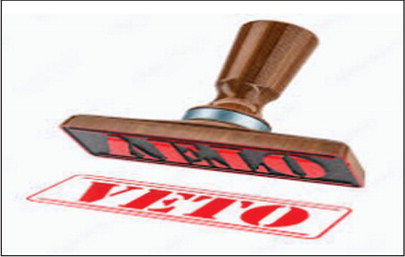Editorial
Not too many people were joyful about having to pay their federal income taxes that were due Monday, April 15. An exception to this can be found in a letter to the editor in today’s newspaper. The letter writer expresses her appreciation for how the federal government has wisely invested her tax dollars in such worthwhile programs as the American Rescue Plan Act that allowed us to overcome the challenges presented by the pandemic and, thus far, avoid a recession.
There are indeed folks among us who don’t mind paying their taxes if they believe their tax dollars are being well spent. Such was the case with those who supported legislation in this year’s General Assembly that would have given localities the option of holding referendums on imposing a 1 percent local sales tax to pay for local school construction projects.
This won’t be happening, however, because Gov. Glenn Youngkin vetoed the legislation, even though it was approved by the General Assembly with bipartisan support. Unless lawmakers override the veto in the veto session that convenes today – an unlikely scenario – localities that would like to raise their taxes to pay for their own school construction projects won’t be allowed to do so.
We’re not sure we understand the logic behind denying localities this authority. A handful of specific localities were given this authority in past legislative sessions. Does it make sense that a few chosen localities have this limited taxing authority while the vast majority of the state’s jurisdictions do not?
More than half of the state’s schools are more than 50 years old and in need of substantial renovations. The Virginia Department of Education a couple of years ago identified $25 billion in needed improvements to the state’s public schools. In our own backyard we have obvious needs. The original part of Parry McCluer Middle School is a century old, with the remainder of the building dating to the 1950s.
A study by the Joint Legislative Audit and Review Commission showed that the state has been woefully underfunding local school divisions for a very long time. Because the state doesn’t appear to be in any big hurry to make up this shortfall, the legislation to give localities limited taxing authority to pay more for local school construction projects would have at least been one small step to address the inadequate state funding.
This measure, we acknowledge, would not have been helpful for all localities. Poorer jurisdictions in the more rural parts of the state would not have been able to afford to raise their local sales tax. Because the sales tax is a regressive tax, it hits those who can least afford to pay it the hardest.
We would much prefer that the state come through with its full share of funding for all local schools so that all children throughout the state would have access to quality schools and up-to-date facilities. Since this isn’t likely to happen anytime soon, though, we would at least like to see localities that have the wherewithal to tax themselves at a higher rate be given the authority to fund their own school construction projects.
Not everyone dislikes paying taxes, especially when people have the power to determine how their tax dollars are being spent.

.jpg)


